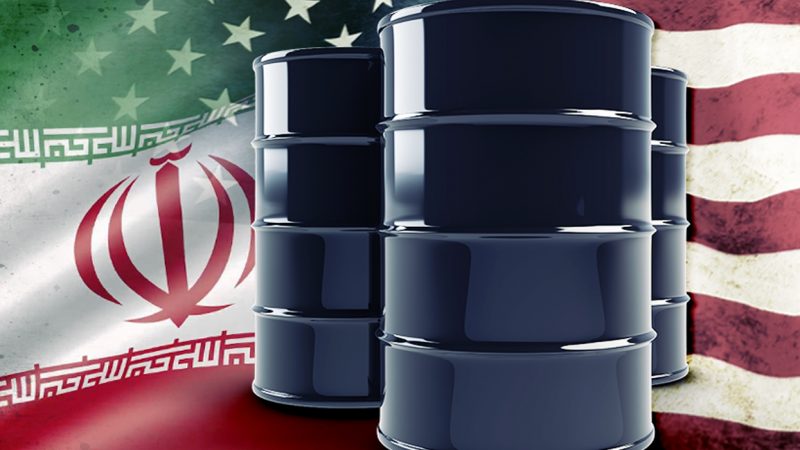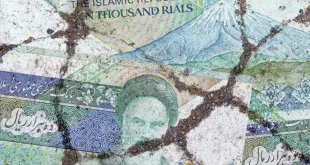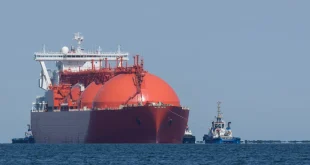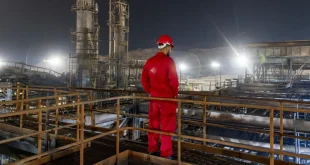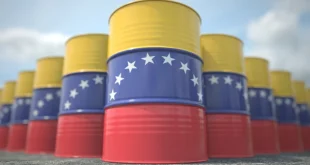While crude oil exports (Iran’s most important foreign exchange industry) have sharply reduced with no hope of recovery, other resources such as petrochemicals, mines and metals could have been a way out for the Islamic Republic… however, these sectors were also sanctioned in Spring 2019. Iran’s petrochemical and steel sectors have grown rapidly over the past two decades, but that growth has been nearly halted by sanctions.
There are currently more than 50 petrochemical plants are operating in Iran. The annual production capacity of these units under normal conditions is over 60 million tons. Petrochemical exports, for example, peaked from under $3 billion by 2005 to $15 billion by 2011. Due to the large variety of petrochemical products, the sanction on these petrochemical products will have its own challenges. Another issue is the market diversification of these products, which has expanded from neighboring countries to the EU and Latin American markets. Iran can maintain its share of the petrochemical market by selling petrochemicals on the gray market, but it must sell them at a lower price. How to actually get money for products they sell will be another problem.
The geopolitical importance of producing and exporting petrochemical products is that the industry generates added value because of gas processing and the creation of diverse products in different categories. In this way, it hampers the crude sale of energy resources and with the activity of production units, the cycle of petrochemical industries becomes more active, leading to economic growth and employment creation.
PETROCHEMICALS IN THE SIXTH DEVELOPMENT PLAN
Having the world’s second largest gas reserves, Iran has the potential to increase production of petrochemicals. The petrochemical industry’s needs are reasonably priced and available in Iran, allowing petrochemical products to be marketed at a lower price than other major petrochemicals. Given that Iran’s main export is oil and oil derivatives under normal circumstances, the Iranian government developed a comprehensive plan to increase petrochemical products and intend to increase both the quality and variety of petrochemical products by increasing new petrochemical plants and rebuilding the old ones. With this plan, the country would have been able to increase the share of these products in its exports by increasing non-oil exports while reducing reliance on oil exports.
$37 BILLION IN PETROCHEMICAL REVENUE FROM THE THIRD PHASE
According to Bijan Zanganeh’s statement on the measures needed to achieve the goals of petrochemical development in the context of Iran’s sanctions, Iran has identified two leaps in the petrochemical industry. In the second leap, it will produce 100 million tonnes of petrochemical goods worth $27 billion by 2023. In the third jump from 2023 onward, Iran will produce about 137 million tonnes, worth $37 billion.
PERSIAN GULF PETROCHEMICAL COMPANY
The Persian Gulf Petrochemical Company, which has been the main target of the recent US sanctions, is the largest petrochemical company in the country, with 14 production complexes. The company is a leader in the Iranian petrochemical industry with 8 service companies in investment, commercial and technical fields. According to the US Treasury Department, the company holds about 2% of Iran’s petrochemical exports. Previous sanctions include three subsets of Iranian petrochemical plants owned by the Persian Gulf Petrochemical Company, with a combined production capacity of 50% of Iran’s petrochemical production capacity. The Gulf Petrochemical Company’s product portfolio is manufactured in 14 companies, including aromatics, fuel feed, basic chemicals and polymers.
In addition to its share of more than 88% of aromatic material production capacity and 69% of PVC product, the Persian Gulf Petrochemical Company is the sole manufacturer of engineering polymers, polyethylene terephthalate, PVC emulsion and epoxy resins in Iran. The company is also the only supplier of light petroleum, heavy duty and liquefied petroleum products in the Iranian petrochemical industry.
Last June, the US Department of the Treasury’s Office of Foreign Assets Control (OFAC) imposed new sanctions on Iran’s petrochemical industry. These sanctions were imposed on the petrochemical industry in the wake of the post-Iran oil export sanctions. The US has added Iran’s petrochemical company as well as four satellite companies to its sanctions list.
It should be noted that Iran’s petrochemical industry had already been sanctioned. The first petroleum export sanction was the UN Security Council sanctions, which first took place in Resolution 2 in 2007, and then intensified on November 5 by the then US President. In June 2019, the US imposed sanctions on several petrochemical companies, in particular the Persian Gulf Holding, to block what it called “terrorist financing.” The United States claimed that the money was going to support the Quds forces. Iran’s petrochemical sanctions will have significant repercussions for the Iran as more than a quarter of Iran’s non-oil exports are petrochemical products. In addition, some petroleum products are used mainly for petrochemical feedstuffs generate about $10-12 billion annually for Iran.
Iran’s main rival, Saudi Arabia, and Iran’s petrochemical products will be American petrochemical products in the future. The Shale gas revolution gave the United States the opportunity to become an energy exporter, and energy exports play an important role in the country’s foreign policy. The United States uses energy exports to strengthen relations with its allies. The sanction of energy exports and the blocking of investment in the energy industry of countries, such as Iran and Venezuela also underscore the importance of paying attention to the energy sector in US foreign policy.
COMPANIES THAT VIOLATE SANCTIONS
The United States has blacklisted numerous foreign companies, especially Emarati and Chinese, over the past few months for violating Iran sanctions. The Treasury Department announced in mid January that one Emarati company and five Chinese and Hong Kong-related companies were in violation. There are two reasons for the widespread involvement of Chinese and Emarati companies in the bypassing of American sanctions, the first of which is that China and the UAE are Iran’s largest trading partners.
China made a revenue of $35 billion in bilateral trade with Iran last year, which included the sale of nearly 70,000 barrels of crude to Iran daily. However, Iran’s non-oil exports to China are also significant, with the major part being petrochemicals. According to Iranian customs statistics, by the beginning of 2018, Iran had exported $9.2 billion of non-oil exports to China and imported $10.3 billion of non-oil products from China. In other words, China’s share of Iran’s total non-oil trade was about 22% in 2017.The same is the case with the UAE, which has a 15% share in Iran’s total non-oil trade.
Such large volumes of trade are possible due to the large number of traditional and cooperative companies involved. Iran is trying to circumvent sanctions by establishing networks of such companies. In other words, the companies of these countries, as the biggest importer of petrochemical and petroleum products in Iran, have grounds for violating US sanctions.
Reuters reported this June that Iran would give foreign customers a 15% discount on petrochemical products. The United States appears to be in favor of a policy of maximum pressure on Iran to reduce its export of petrochemical products to the market and, if possible, to reduce its export of petrochemical products. Under previous sanctions, Iran was able to both partially meet its foreign exchange needs by selling petrochemical products and mitigate some of the effects of the oil export sanctions.
Following the recent sanctions, conditions for the sale of Iranian petrochemical products in the regional and global markets will become more difficult, and we will have to wait and see what mechanisms Iran will pursue to continue their sale. The recent US embargo could have devastating effects. If countries continue to sell petrochemical products in Iran’s gray market, it might help alleviate some of the pressure. Iran certainly does not want to lose the East Asian market, especially the Chinese market. For the time being, it seems Iran has already found a new way to circumvent the recent sanctions.
US sanctions against Iran’s oil exports (and Iran’s energy industry in general) have not only reduced its oil and gas production capacity, but also disrupted Iran’s plans to offset the decline in production and increase the production capacity in the country owing to the withdrawal of foreign companies operating in the oil and gas fields. The future is also troubled since this situation will cause Iran to fail to meet its goals of increasing oil and gas production capacity, which will cause the country to lose its place in the global energy market.
Most of Iran’s petrochemical plants need reconstruction, and Iran does not have the technology or capital needed to rebuild old and semi-finished units. The petrochemical industry and in general, Iran’s oil and gas industry, need foreign capital and technology. Without a resolution to the ongoing problems with the United States, Iran will not have a say in the energy market. Iran’s energy diplomacy needs to be redefined.
With the recent US sanctions imposed on Iran’s petrochemical industry, Iran will be deprived of an estimated annual average of $8 billion revenue. On top of that, non-oil exports will decline and the economy as a whole will deteriorate. As a result, Iranian petrochemical products in the regional and global market will gradually decline.

